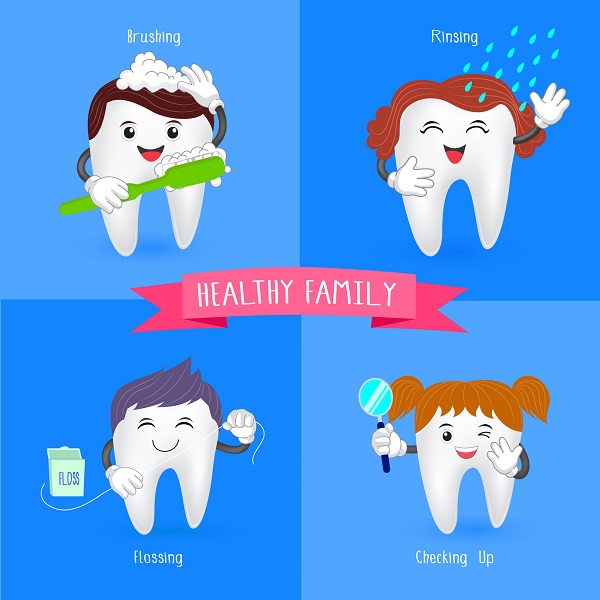Did you know that your daily brushing and flossing isn’t just important for your teeth and gums, but it could also affect your weight? That’s right, there’s a surprising link between oral health and obesity that many people are unaware of. Recent studies have shown that poor oral health and obesity are closely connected, with overweight individuals being more prone to gum disease and tooth decay. But how exactly does this happen? And what can you do to ensure that your oral health is not impacting your weight? In this article, we’ll delve into the fascinating relationship between oral health and obesity, exploring the latest research and providing you with practical tips to keep both your teeth and waistline healthy. So buckle up and get ready to discover how your mouth and body are more connected than you ever thought possible!
There is growing evidence to suggest that there is a link between oral health and obesity, as both conditions are influenced by similar lifestyle factors and have been found to be associated with chronic inflammation.
Understanding the Link Between Oral Health and Obesity
One of the primary factors linking oral health and obesity is diet. Consuming a diet that is high in sugar and refined carbohydrates can contribute to both tooth decay and weight gain. The bacteria that cause tooth decay thrive on sugar, and consuming excess sugar can also contribute to weight gain by spiking blood sugar levels and leading to overeating.
In addition to diet, poor oral health can also contribute to obesity by affecting overall health and physical activity levels. Oral health problems such as tooth pain, gum disease, and missing teeth can make it difficult to eat healthy foods, leading to a diet that is high in calories and low in nutrients. These oral health problems can also make it difficult to exercise or engage in physical activity, further contributing to weight gain.
When we think about the causes of obesity, diet and exercise are usually the first things that come to mind. While it’s true that what we eat and how much we move plays a significant role in our weight, it turns out that our oral health also plays a crucial role. Recent studies have shown that there is a strong link between poor oral health and obesity, with overweight individuals being more likely to suffer from gum disease and tooth decay. But why is this the case?
Science Behind Obesity and Oral health
To understand the link between oral health and obesity, we need to look at the science behind it. Researchers have found that there is a complex interplay between the bacteria in our mouths and our body’s immune system. When we have poor oral hygiene, harmful bacteria can build up in our mouths, leading to inflammation and infection. This, in turn, can cause our immune system to go into overdrive, releasing inflammatory chemicals that can damage our tissues and organs. Over time, this chronic inflammation can lead to a host of health problems, including obesity.
Furthermore, chronic inflammation is a common feature of both oral health problems and obesity. Periodontal disease and other oral infections can lead to inflammation throughout the body, which can contribute to obesity by promoting insulin resistance and metabolic dysfunction. Similarly, obesity is associated with chronic low-grade inflammation, which can also contribute to oral health problems.
Maintaining good oral hygiene habits, eating a healthy and balanced diet, and engaging in regular physical activity can help reduce the risk of both oral health problems and obesity. Additionally, regular dental checkups and cleanings can help detect and treat any oral health issues before they become more serious and contribute to systemic inflammation and obesity.
The Impact of Poor Oral Health on Obesity
Reduced ability to taste food: Poor oral health can reduce a person’s ability to taste food, which can lead to overeating. When a person can’t taste food properly, they may feel the need to eat more to feel satisfied.
Increased risk of gum disease: Gum disease, also known as periodontal disease, can make it difficult to eat certain foods. This can lead to a restricted diet, which may be high in calories and low in nutrients.
Increased inflammation: Poor oral health can lead to chronic inflammation in the body, which can increase the risk of developing obesity. Inflammation can disrupt the body’s hormonal balance, leading to an increase in appetite and a decrease in energy levels.
Poor digestion: Poor oral health can lead to digestive problems, which can make it difficult for the body to absorb nutrients properly. This can lead to malnutrition, which can contribute to weight gain.
Increased risk of diabetes: Poor oral health has been linked to an increased risk of diabetes, which can also contribute to weight gain. Diabetes can make it difficult to control blood sugar levels, which can lead to increased hunger and overeating.
Role of Inflammation in Both Oral Health and Obesity
Oral Health:
Poor oral hygiene can lead to the accumulation of bacteria in the mouth, which can cause inflammation of the gums, also known as gingivitis. If left untreated, gingivitis can progress to periodontitis, a more severe form of gum disease that can cause damage to the tissues that support the teeth, leading to tooth loss. Periodontitis is associated with chronic inflammation in the gums, which can spread to other parts of the body and contribute to the development of other inflammatory conditions, such as cardiovascular disease and diabetes.
Obesity:
Obesity is also associated with chronic inflammation. Adipose tissue, or fat cells, produce hormones and other molecules that can promote inflammation in the body. This chronic inflammation can lead to insulin resistance, which can increase the risk of developing type 2 diabetes, and can also contribute to the development of cardiovascular disease and other health problems.
The Link between Oral Health and Obesity:
There is evidence to suggest that the chronic inflammation associated with poor oral health can also contribute to obesity. Chronic inflammation can disrupt the body’s hormonal balance, leading to an increase in appetite and a decrease in energy levels. Additionally, poor oral health can lead to a reduced ability to taste and enjoy food, which can lead to overeating and weight gain.
How to Maintain Good Oral Health to Prevent Obesity
Maintaining good oral health is important for preventing a range of health problems, including obesity. Here are some tips for maintaining good oral health to help prevent obesity:

Brush and floss regularly: Brush your teeth twice a day and floss at least once a day to remove plaque and bacteria from your teeth and gums.
Use mouthwash: Mouthwash can help kill bacteria in your mouth and freshen your breath. Choose a mouthwash that is alcohol-free and contains fluoride.


Eat a healthy diet: Eating a healthy, balanced diet that is low in sugar and processed foods can help prevent tooth decay and gum disease. Foods that are high in fiber, such as fruits, vegetables, and whole grains, can also help promote good oral health.
Drink plenty of water: Drinking water can help wash away food particles and bacteria from your mouth, and can also help keep you hydrated and healthy.


Visit the dentist regularly: Regular dental checkups and cleanings can help prevent oral health problems before they become serious. Your dentist can also provide advice on how to maintain good oral health and prevent obesity.
Practical Tips for Improving Oral Health and Weight
Practice good oral hygiene: Brush your teeth twice a day, floss at least once a day, and use mouthwash to help prevent oral health problems.
Choose healthy foods: A diet that is low in sugar and processed foods and high in fruits, vegetables, and lean proteins can help prevent tooth decay, gum disease, and obesity.
Drink plenty of water: Drinking water can help wash away food particles and bacteria from your mouth, and can also help keep you hydrated and healthy.
Limit sugary and acidic drinks: Sugary and acidic drinks, such as soda, sports drinks, and fruit juices, can contribute to tooth decay and weight gain. Limit your consumption of these drinks or choose water instead.
Practice portion control: Overeating can lead to weight gain. Pay attention to portion sizes and eat until you are satisfied, not until you are full.
Engage in regular physical activity: Regular exercise can help manage weight and reduce inflammation in the body.
Manage stress: Stress can contribute to weight gain and poor oral health. Engage in activities that help you relax, such as meditation or yoga.
Visit the dentist regularly: Regular dental checkups and cleanings can help prevent oral health problems and identify issues early on.
Importance of a Balanced Diet for Oral Health and Obesity
Oral Health:
A diet that is high in sugar and processed foods can contribute to tooth decay and gum disease. Bacteria in the mouth thrive on sugar and produce acid that can erode the tooth enamel, leading to cavities. A diet that is low in nutrients can also weaken the immune system, making it harder for the body to fight off infections, including those that affect the teeth and gums. A balanced diet that is rich in vitamins, minerals, and other nutrients is essential for maintaining good oral health.

Weight Management:
A balanced diet is also important for weight management. Eating a diet that is high in processed foods and added sugars can lead to weight gain, while a diet that is high in fiber, fruits, and vegetables can help promote weight loss. A balanced diet can also help regulate appetite, making it easier to control portion sizes and reduce calorie intake.
Role of Exercise in Oral Health and Weight Management
Oral Health:
Exercise can help improve oral health by reducing inflammation in the body. Chronic inflammation is a contributing factor to the development of gum disease and tooth decay. Regular exercise can help to decrease the levels of inflammatory markers in the body, which can help reduce the risk of developing oral health problems.
Weight Management:
Exercise is also important for weight management. Regular physical activity can help burn calories and promote weight loss. Additionally, exercise can help increase muscle mass, which can help boost metabolism and burn more calories at rest. Exercise can also help prevent weight gain by reducing the risk of overeating and helping to regulate appetite.
Seek Professional help for Oral Health and Obesity Issue
If you are struggling with poor oral health or obesity, it’s essential to seek professional help. Your dentist can provide you with personalised recommendations for maintaining good oral hygiene, while a registered dietitian or nutritionist can help you develop a healthy eating plan that works for you. Additionally, your doctor can help you determine the underlying causes of your weight gain and recommend appropriate treatments.
Conclusion
In conclusion, the link between oral health and obesity is a fascinating and complex subject. By understanding the science behind this connection and taking practical steps to maintain good health and manage our weight, we can improve our overall health and well-being. So remember to brush and floss regularly, eat a balanced diet, exercise regularly, and seek professional help if necessary. By doing so, you can enjoy a healthier, happier life for years to come!






